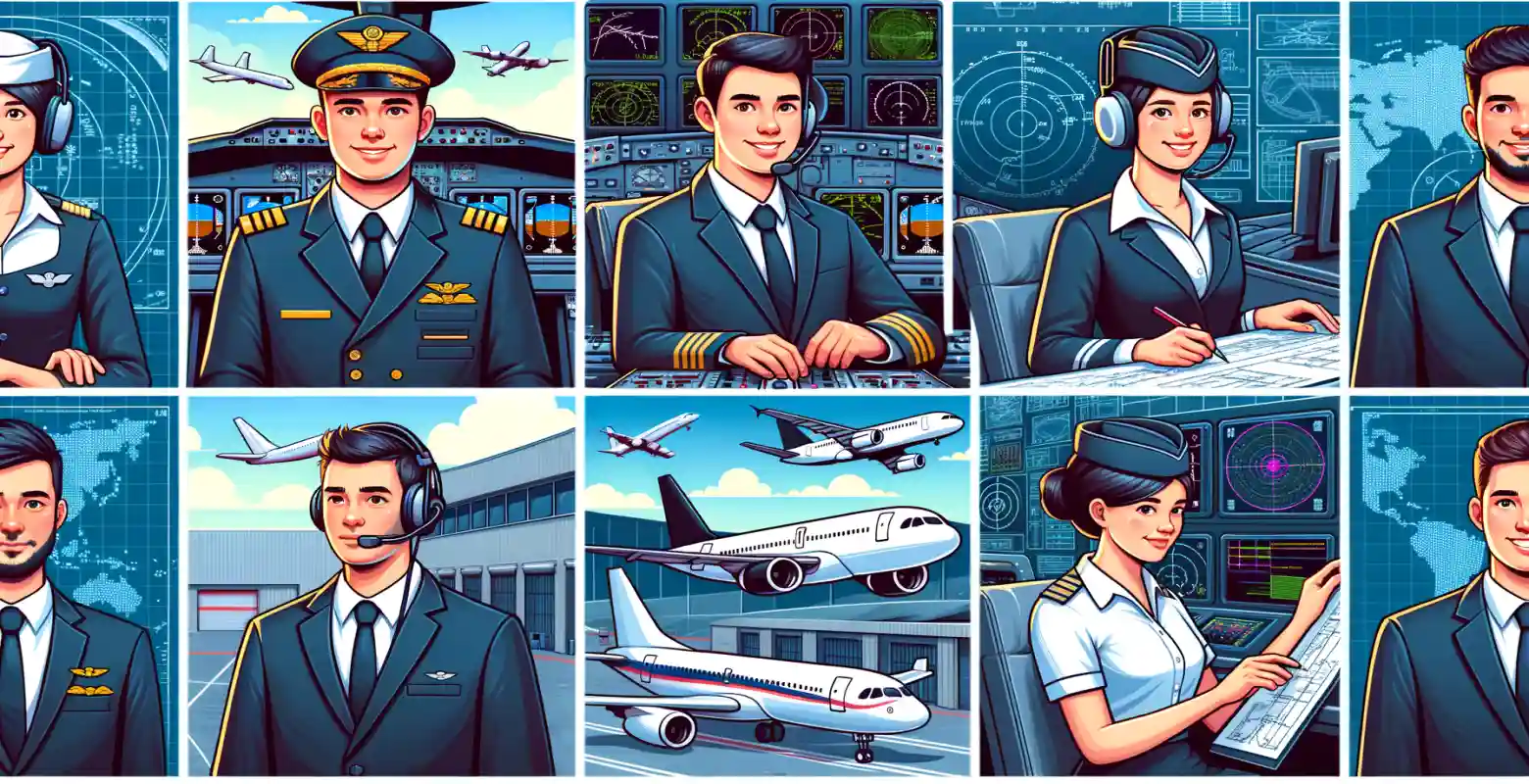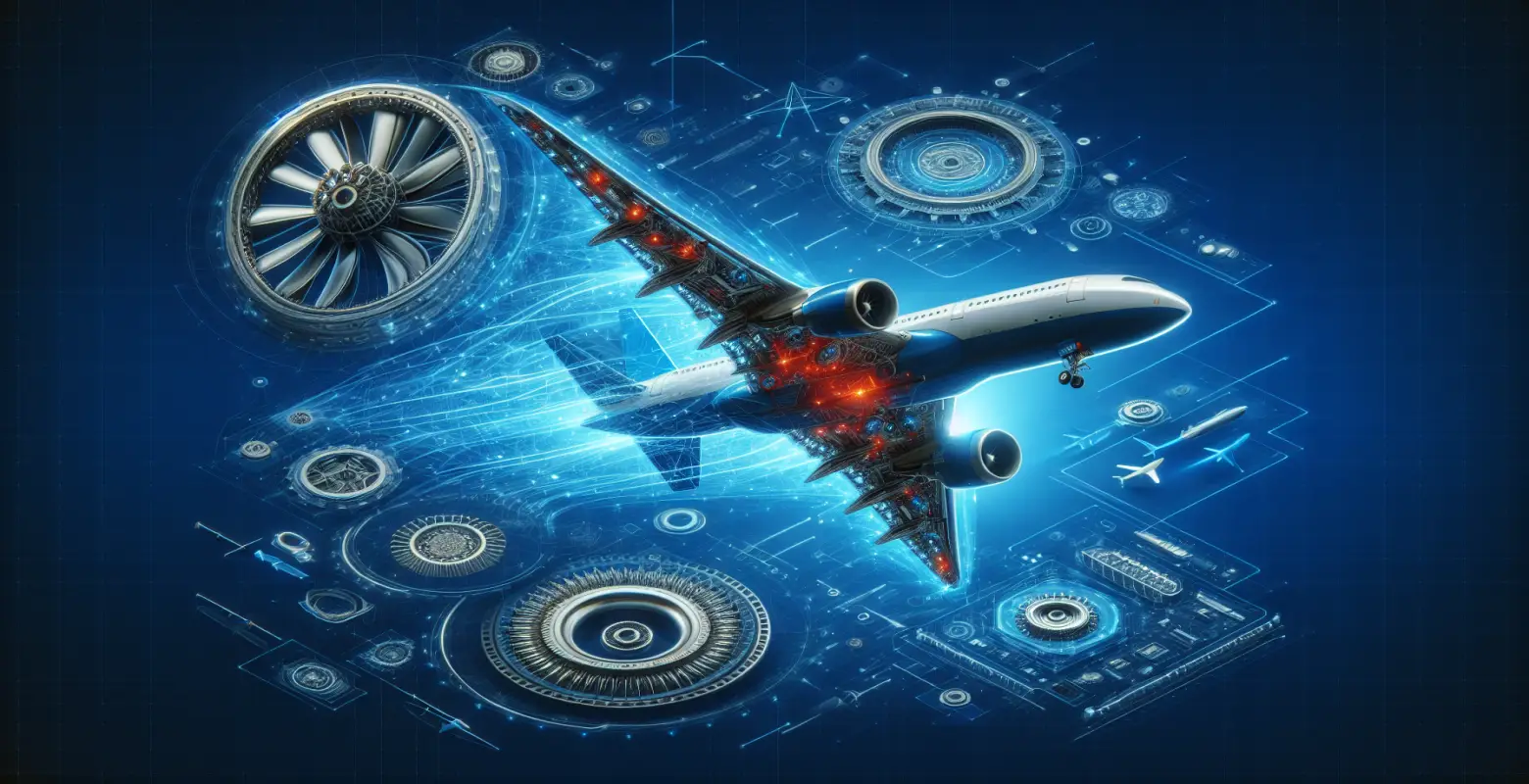What are the most popular professions in the aviation industry?
1. Introduction
The aviation industry is one of the most dynamically developing sectors of the economy, offering a wide range of career opportunities. Thanks to globalization and the increasing number of passengers using flights, the aviation job market is becoming increasingly attractive. Professions in this industry are not only prestigious but also demanding and full of responsibility. In this article, we will look at the most popular careers in aviation, present the requirements needed to perform them, and discuss the challenges and benefits associated with working in this dynamic industry.
2. Pilot
2.1. Requirements and Qualifications
The profession of a pilot is one of the most recognizable and prestigious in the aviation industry. To become a pilot, it is necessary to obtain the appropriate licenses, such as an Airline Transport Pilot License (ATPL), which is required for piloting large passenger aircraft. The training process includes both theoretical and practical classes, as well as numerous exams. Maintaining excellent psychophysical fitness and regular training are essential elements of a pilot's career.
2.2. Challenges and Responsibility
Being a pilot involves a huge responsibility for the lives of passengers and crew. Pilots must deal with demanding weather conditions, long routes, and stressful situations. On the other hand, this profession offers the opportunity to travel the world and enjoy many privileges offered by airlines.
3. Flight Attendant
3.1. Role and Requirements
Flight attendants are responsible for passenger service during flights, as well as ensuring their safety and comfort. Candidates for this position must undergo intensive training, which includes first aid, evacuation procedures, and passenger handling in various crisis situations. Knowledge of foreign languages, especially English, is often required.
3.2. Advantages and Challenges of Working in the Air
Working as a flight attendant offers many opportunities for travel, experiencing new cultures, and working in an international environment. However, this profession requires great flexibility, stress resistance, and the ability to deal with unusual situations such as sudden emergencies or difficult passengers.
4. Aircraft Mechanic
4.1. Key Role in Aircraft Maintenance
Aircraft mechanics play a crucial role in maintaining the safety of aviation operations. They are responsible for regular technical inspections, repairs, and maintenance of aircraft. To work as an aircraft mechanic, it is required to have the appropriate certificates, such as an Aircraft Maintenance License (AML), compliant with EASA (European Aviation Safety Agency) regulations.
4.2. Education and Perspectives
Working as an aircraft mechanic requires advanced technical knowledge and practical skills. Individuals interested in this career path should complete relevant technical studies or specialized courses. Due to the dynamic development of the aviation industry, aircraft mechanics are currently in high demand, providing them with job stability and attractive remuneration.
5. Air Traffic Controller
5.1. Requirements and Role of Air Traffic Controllers
Air traffic controllers are responsible for managing air traffic in airspace and at airports. This job requires excellent concentration, reflexes, and decision-making skills in stressful situations. To become a controller, specialized training must be completed, along with possessing analytical skills and excellent hand-eye coordination.
5.2. Exceptional Responsibility
The profession of an air traffic controller is one of the most demanding in aviation, as the safety of aircraft and passengers depends on the decisions of these individuals. On the other hand, this job offers a high level of professional satisfaction, stability, and attractive remuneration.
6. Other Popular Careers in Aviation
6.1. Aviation Safety Specialist
Aviation safety specialists are responsible for monitoring and assessing the risk associated with aviation operations. Their tasks include developing and implementing procedures to minimize threats and responding to incidents. This profession requires excellent knowledge of regulations and experience in risk analysis.
6.2. Airport Manager
An airport manager is responsible for the operational management of the airport, ensuring its smooth functioning. This job involves managing personnel, monitoring safety, logistics, and infrastructure. Airport managers must have managerial skills and a thorough understanding of the aviation industry's functioning.
7. Conclusion
The aviation industry offers a wide range of career opportunities that not only provide job satisfaction but also offer a chance for career development on an international scale. Professions such as pilot, flight attendant, aircraft mechanic, or air traffic controller are an integral part of this industry and are crucial for the functioning of aviation. As technology advances and the number of passengers grows, the demand for qualified professionals in this industry will increase.
Thanks to the dynamic development of aviation, both in passenger and cargo transport, professions in this industry offer stability and opportunities for development and advancement. Working in aviation involves not only challenges but also the opportunity to participate in the fascinating world of modern technologies and global connections. If you dream of a career in the skies, it is worth considering which of these career paths best suits your interests and skills.
Regardless of the profession you choose, it is important to continuously develop and enhance your qualifications, as the aviation industry is one of the most technologically advanced and demanding. Continuous training, adaptation to new standards and procedures are crucial to being competitive in the job market and successfully pursuing your dreams of working in aviation.






Number of comments: 0